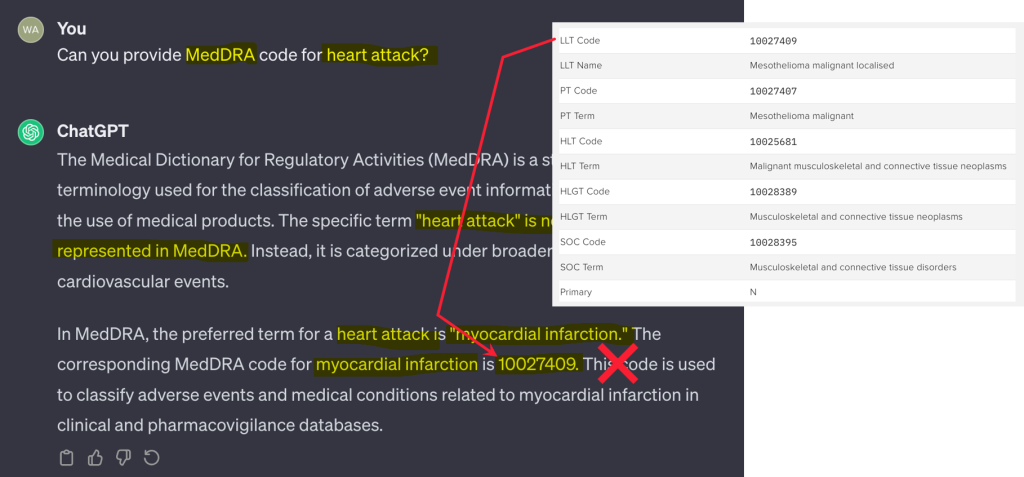The 24-hour study build is the future of clinical data management
Manual processes hold back clinical trials. Discover Zelta's vision for using AI to build and launch electronic data capture studies in under 24 hours.

The clinical development landscape is on the brink of a significant transformation. Generative artificial intelligence (GenAI) is poised to unlock between $13 billion and $25 billion in annual value for pharmaceutical clinical development, signaling a shift from outdated, manual processes.
For too long, fragmented systems and overreliance on manual effort have hindered the life sciences industry. At the same time, clinical trial teams have often used technology to improve flawed processes rather than fundamentally redesign them. This approach has resulted in years of sustained inefficiencies, especially in clinical data management.
There’s a better way. At Zelta, we envision a future where building, testing, and launching a clinical study can happen in under 24 hours. This isn’t just about speed; it’s about building a foundation of trust, collaboration, and traceability that redefines what’s possible in clinical trials.
Understanding the challenges that face clinical development
The life sciences industry faces a unique set of challenges. While large pharmaceutical companies have the resources to experiment with custom AI pipelines, small to mid-sized pharmaceutical, medical device, and Contract Research Organizations (CROs) with limited budgets run 75% of clinical trials. These smaller players face the same problems as their larger counterparts but with fewer people and lower budgets to address them. Some of these challenges include:
- Manual processes and fragmented systems: The clinical trial industry digitized paper processes without re-engineering the underlying data models or workflows. This approach led to fragmented data systems that don’t communicate with each other, creating data silos and inefficiencies.
- Lack of data standardization: Data is scattered across different systems in various formats, making it a significant pain point for AI applications that rely on consistent, high-quality data.
- Organizational inertia: The clinical trial industry is risk-averse, and with good reason. However, this fosters a culture where organizations build their processes around the limitations of legacy technology, which makes it challenging to adopt new, more efficient ways of working.
- Misalignment of compliance and quality: There’s a common misconception that being compliant automatically means producing high-quality results.
As my colleague Isaac Erickson, vice president of consulting for Zelta, notes “Teams can follow a standard operating procedure (SOP) perfectly for compliance. Yet, if they are consistently completing that procedure with poor quality data, that approach becomes the pitfall for risk-based testing.” As he explains, this focus on process over outcome can obscure what’s important.
These challenges mean that the crucial phase of designing and building the electronic data capture (EDC) system can become a bottleneck, delaying study start-up and making it difficult to adapt to changes once a trial is underway.
“We envision a future where building, testing, and launching a clinical study can happen in under 24 hours. This isn’t just about speed; it’s about building a foundation of trust, collaboration, and traceability that redefines what’s possible in clinical trials.”
-- Jennifer Duff, General Manager, Zelta
A new vision: the 24-hour study build
Our industry needs a new approach to overcome these challenges. Small and mid-sized organizations, in particular, need accessible, off-the-shelf AI capabilities that can be integrated into their existing tools.
At Zelta, our approach to this conundrum started with an idea: “What if we could move past these limitations? What if we could build, test, and validate a study database in 24 hours?”
The technology now exists to automate and streamline these processes, freeing human experts to focus on what truly matters.
Our vision is to shift the role of humans within technology processes from manual facilitators to decision-makers so that organizations can focus on what truly matters: using data science for sought-after trial outcomes. This “easy button” concept goes beyond just speed to a more agile, reliable, and intelligent process.
A 24-hour study does exactly this to redefine the entire paradigm. It means:
- Accelerated timelines: Eliminating the database build as a bottleneck and incorporating intelligence into the build process allows teams to identify issues earlier and trials to start faster.
- Increased agility: Understanding how new insights or recruitment challenges influence mid-study changes that happen quickly to prevent delays or study failure.
- Enhanced focus: Automating manual, repetitive tasks enables skilled professionals to concentrate on each trial’s unique scientific and operational challenges. It empowers them to add value in new ways rather than getting bogged down in configuration.
Built on trust, collaboration, and complete traceability, our vision for the 24-hour study build ensures speed never comes at the expense of quality or compliance.
We’re moving beyond simply working around problems and are starting to solve them at their root. Rather than apply AI technology to a legacy process to drive efficiency, we need to think about the problem and assess if AI is the answer.
-- Walker Bradham, senior director of product management and design, Zelta
The technology behind the vision
Achieving a 24-hour build requires a fundamental shift in both technology and mindset. Zelta’s approach is built on four primary pillars.
- A unified, integrated platform: Zelta is a fully integrated EDC/CDMS system. Data flows in real-time across the platform, eliminating the data silos that plague so many other systems in the industry. Zelta provides a single source of truth and a solid foundation for automation.
- Product-led innovation: We are a product-first company, not a services company. Our incentive is to improve our product and empower our clients to be self-sufficient. We work closely with clients to build intuitive, workflow-oriented technology that enables users to work more efficiently rather than forcing technology to conform to a flawed process. We work hard to understand what clients need most and build that into our platform.
- Protocol-aware automation: Leveraging AI Agents, Zelta can provide technology that interprets the clinical protocol and automatically configures the study database. This dramatically reduces the manual effort required to translate a protocol into a functional system while maintaining traceability from the source document to the final build.
- Risk-based validation: True efficiency requires a more innovative approach to validation. Instead of a one-size-fits-all manual testing process, a risk-based approach focuses validation efforts on the highest risk areas. This strikes a critical balance between compliance and efficiency, ensuring quality without unnecessary delays.
The convergence of AI and change opportunities
The future of clinical data management is not a distant dream; it’s happening now. The convergence of advanced AI and willingness to challenge long-held assumptions creates fundamental change opportunities.
Walker Bradham, our senior director of product management and design, put it best: We’re moving beyond simply working around problems and are starting to solve them at their root. Rather than apply AI technology to a legacy process to drive efficiency, we need to think about the problem and assess if AI is the answer.
This transformation will level the playing field, allowing organizations of all sizes to focus on their core mission: developing new therapies that improve and save lives.
Let’s discuss how we can reshape the future of clinical trials, together.
Related Articles

Platform trials: How to maximize results with an EDC platform
Platform trials offer increased flexibility and reduced costs for sponsors and CROs....
By Jennifer Duff | 6 min. read

How SaaS platforms are breaking the mold for clinical trials
With the right platform, SaaS systems can improve data accuracy, optimize costs, and...
By Jennifer Duff | 6 min. read

How supervised machine learning optimizes AI use in clinical trials
LLMs are frequently hailed as revolutionary tools in clinical trials. Read how...
By Walker Bradham | 5 min. read
Ready for a consultation?
Our team is ready to answer your questions. Let's make smarter health ecosystems, together.
